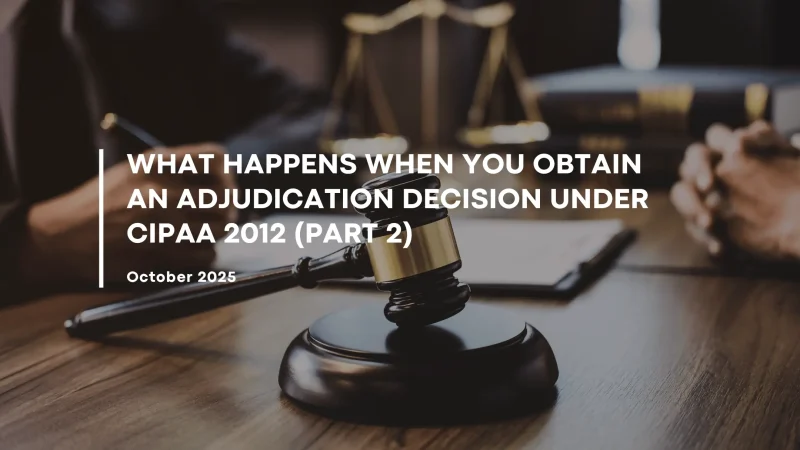In any business environment, disagreements are inevitable. Whether they arise from contracts, partnerships, or commercial arrangements, resolving disputes in a structured, efficient, and cost-effective manner is crucial. At TSL Malaysia, we understand how important it is for businesses—especially those just starting out—to know their options. One of the most essential distinctions in legal strategy is between mediation and litigation. This guide will explore both methods of dispute resolution and help you understand how each can serve different business needs.
Understanding Dispute Resolution: Mediation vs. Litigation
Dispute resolution: mediation vs. litigation refers to two core methods businesses use to settle conflicts. While both aim to resolve disagreements, their approach, cost, duration, and confidentiality vary significantly.
Mediation in Dispute Resolution: Mediation vs. Litigation
What Is Mediation?
Mediation is a voluntary, confidential process in which a neutral third party (the mediator) helps the disputing parties reach a mutually acceptable agreement. In the context of dispute resolution: mediation vs. litigation, mediation is often seen as the more collaborative approach.
Advantages of Mediation
- Confidentiality: Mediation sessions are private and not part of the public record.
- Speed: Mediation often resolves disputes faster than going to court.
- Cost-Effective: It is generally less expensive than litigation.
- Preserves Relationships: Mediation encourages cooperation and is less adversarial.
Disadvantages of Mediation
- Non-Binding: Unless an agreement is reached and signed, outcomes are not enforceable by law.
- Dependent on Willingness: Success relies on both parties’ willingness to compromise.
Litigation in Dispute Resolution: Mediation vs. Litigation
What Is Litigation?
Litigation is the formal process of resolving a dispute through the court system. In dispute resolution: mediation vs. litigation, litigation represents a more traditional and binding route.
Advantages of Litigation
- Legally Binding: Court decisions are enforceable by law.
- Clear Procedure: The process follows a structured timeline with set rules.
- Public Record: Ensures accountability through transparency.
Disadvantages of Litigation
- Time-Consuming: Court cases can take months or years.
- Expensive: Legal fees, court costs, and potential appeals can be significant.
- Public Exposure: Court records are typically accessible to the public.
Choosing the Right Path: Dispute Resolution: Mediation vs. Litigation
When to Use Mediation
- Early-stage business disagreements
- Contract misunderstandings
- Partnership disputes where preserving the relationship matters
When to Use Litigation
- High-stakes commercial disputes
- Issues where a legal precedent or enforcement is needed
- Situations where mediation has failed
Choosing between mediation and litigation should depend on the nature of your dispute, the value of confidentiality, the importance of maintaining business relationships, and the need for a binding decision.
Role of TSL Malaysia in Dispute Resolution: Mediation vs. Litigation
At TSL Malaysia, we help businesses navigate the landscape of dispute resolution: mediation vs. litigation by offering:
- Legal consultation to understand your situation
- Mediation support with skilled negotiators
- Litigation representation in Malaysian courts
- Pre-dispute advisory to avoid escalation
Our team is equipped to support businesses of all sizes in managing conflicts, protecting interests, and maintaining operational focus during difficult times.
Best Practices in Dispute Resolution: Mediation vs. Litigation
- Draft clear contracts to minimize misunderstandings.
- Include dispute resolution clauses in agreements.
- Consider mediation before proceeding to litigation.
- Keep detailed documentation to support your case in either process.
Understanding dispute resolution: mediation vs. litigation can significantly reduce the time, stress, and financial strain associated with unresolved business disputes.
Final Thoughts on Dispute Resolution: Mediation vs. Litigation
In summary, dispute resolution: mediation vs. litigation presents two very different paths to solving legal issues. While mediation emphasizes collaboration and speed, litigation ensures legal enforceability and structure. Businesses—especially new or growing ones—should be aware of the pros and cons of each route and prepare accordingly.
Let TSL Malaysia guide you through the most suitable path for your business.
FAQs
What is the privacy and data protection law in Malaysia?
What is the difference between mediation and litigation?
What are the methods of dispute resolution in Malaysia?
Is dispute resolution the same as mediation?
What is litigation in Malaysia?
Why is mediation a better alternative to litigation?
What are the disadvantages of mediation in dispute resolution?
What are the three types of mediation?
Disclaimer: This article is intended to provide general information only and does not constitute legal advice. It should not be used as a substitute for professional legal consultation. We recommend seeking legal advice before making any decisions based on the information in this article. PDLegal fully disclaims any responsibility for any loss or damage that may result from reliance on this article.

